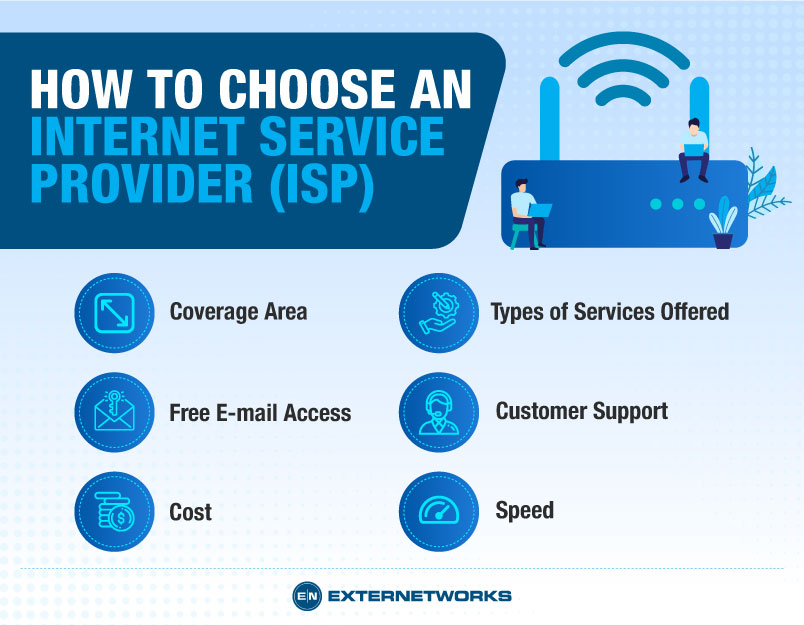28.4k views
An Internet service provider (ISPs) is an organization that connects people to the global network of computers known as the Internet. This type of company operates much like traditional phone companies, offering different types of plans and pricing structures depending on how many connections you want and what kind of bandwidth you require. Sometimes ISP is also called an internet access provider.
You can choose to pay monthly for unlimited data usage or opt for a service package that limits your use to a certain amount per month. Most ISPs offer a free trial period during which you can test out their products without committing to long-term contracts.
The most common way to connect to the Internet is through a cable modem or DSL modem. These devices are usually connected directly to your home’s wall jack. The ISP then sends its signal over these wires to your computer. If you have a wireless router in your home, it may also be possible to connect to the Internet wirelessly. In this case, the ISP will send its signal to the router, which then relays it to your computer.
Internet service provider (ISP) provides access to the Internet by connecting users’ personal computers with other computers across the globe. They do so by using high-speed digital lines called “fibers” that run from one location to another. A fiber optic line has no physical connection between two locations; instead, light pulses travel along the fiber at the speed of light.
Internet Service Providers (ISPS) provide network access to the Internet via a variety of technologies, including cable modems, DSL modems, satellite modems, Ethernet hubs, Wi-Fi hotspots, and mobile broadband.
There are three main categories of Internet service providers (ISP): wired, wireless, and mobile.
The best ISPs are often those that provide the most value. But choosing one isn’t always easy. Here are some things you should consider when shopping around.

If you live in a remote part of the world where broadband Internet is scarce, it might make sense to look into satellite Internet. Satellite offers fast internet speeds over long distances, but it won’t work everywhere. For example, it doesn’t work in mountainous regions or areas covered in snow. In addition, many satellite companies require a monthly subscription fee.
As mentioned above, there are different types of Internet services — cable, fiber, DSL, satellite, etc. Each type of service works differently. Fiber optic cables provide faster speeds than cable, while DSL allows for better connection quality than satellite. Some people don’t want to pay extra fees just because they like how their computer looks. Therefore, it makes sense to shop around for the best deal.
Many ISPs offer free e-mail accounts. This is great news for anyone who wants to keep track of important messages without paying for another account. However, you shouldn’t assume that every provider gives away free e-mail addresses. You’ll want to ask about this during your research.
You may be tempted to go with the fastest option available. While speed is important, remember that it’s only one factor among many. The other factors include coverage area, reliability, cost, and customer support. If you’re looking for the fastest possible connection, you may want to consider a wireless solution. Wireless networks are generally more expensive than wired ones, but they also tend to be much less reliable.
When you sign up for an ISP, you need to know how to contact them if something goes wrong. Customer support is very important. It’s not enough to simply say, “we’re here 24 hours a day.” You need to know what to do if you run into problems.
Finally, you need to think about the price. Most ISPs charge a flat rate per month. That means you can’t get any discounts by bundling multiple services together. Also, you’ll need to decide whether you want a low-cost or a high-end plan. Low-cost plans usually come with fewer features, but they’re cheaper. High-end plans usually come with more features, but they’re more expensive.
In conclusion, an ISP provides various internet services, including cable modems, DSL, fiber optics, satellite tv, wireless broadband, and more. The type of service depends on where you live and what features you are looking for. If you’re interested in learning more about these, check out our articles on how to find the best services for your business needs.
